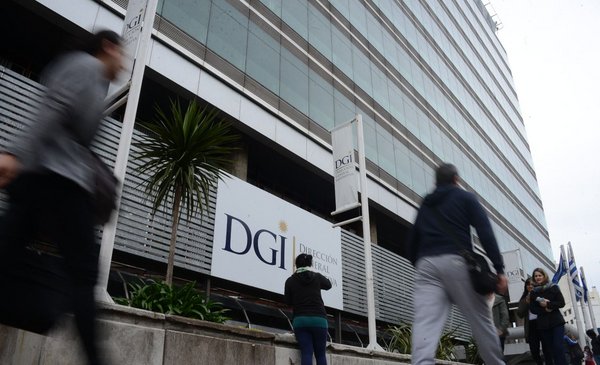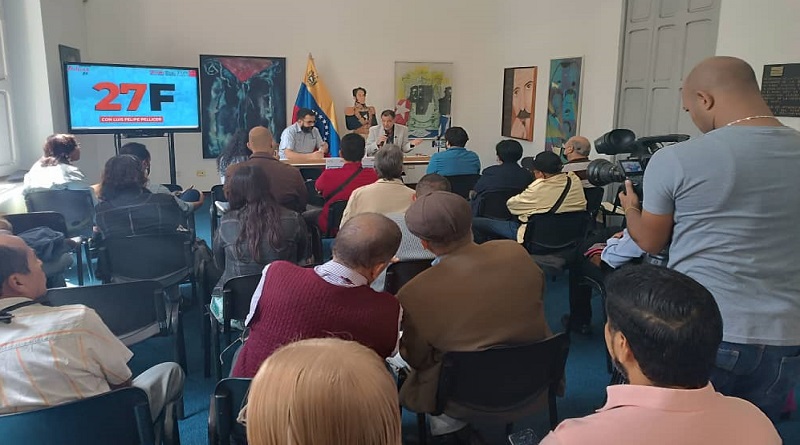The President of the Republic, Luis Lacalle Pou, announced this Thursday a reduction in the Personal Income Tax (IRPF) paid by a third of wage earners, and also a reduction in the Social Security Assistance Tax (IASS) which taxes the highest pensions. The measure implies a tax waiver of US$110 million, equivalent to 5% of the amount collected from these two taxes in the last 12 months.
deductions
For personal income taxpayers with lower incomes, those whose net monthly income is up to $60,500 ($68,260 including Christmas bonus and vacation salary), deductions on expenses (Fonasa, Solidarity Fund, etc.) are now calculated at a rate from 10% to 14%, according to the bill. The rate is 8% for the remaining cases.
One of the deductions that IRPF taxpayers can make is for having dependent children under 18 years of age.. The president affirmed that the deduction for children of 13 PCBs per year ($73,580) to 20 PCBs per year ($113,200). This deduction is made in the liquidation of the father or the mother, or 50% in that of each one.
The deduction will go from 26 BPC per year ($147,160) to 40 BPC per year ($226,400) for each minor or adult dependent child with a disability.
Mortgage installment and rent
On the other hand, the government will increase the ceiling on the cost of housing to be able to access the mortgage credit deduction up to 1,000,000 indexed units (UI) (about US$145,000). Today, IRPF taxpayers can access it as long as the cost of the home at the time of purchase has not exceeded 794,000 UI (about US$ 115,000). The maximum amount to be deducted cannot exceed 36 Annual Benefits and Contributions Bases (approximately $203,760).
In the case of rent Today, 6% of the lease effectively paid is imputed as a personal income tax payment, without prejudice to the fact that the contract has covered the entire year. Now it is expected to increase it by two percentage points to 8%.
“The changes in deductions will benefit 75% of taxpayers, while 14%, about 63,000 Uruguayans will stop paying personal income tax,” added the president.
Personal income tax It is a tax that is levied on the income obtained by individuals residing in the national territory.
The non-taxable minimum is today $39,620 per month. This means that monthly assets below this amount are not affected by the tax.
However, this amount does not take into account the deductions that are calculated for the payment of this tax (Fonasa, retirement contributions, Labor Reconversion Fund, among others), so the limit to be taxed will be higher depending on the deductions that can be made. each worker. By raising the deductions of this personal income tax, a greater number of workers are exempted from paying personal income tax.
According to the latest data published by the DGI on its website, around 460,000 workers paid personal income tax on their income, which is equivalent to 35% of the total universe of potential taxpayers. Last year the government collected $84,311 million (about US$2,104 million) from labor income. This tax represented 14.4% of the total income of the General Tax Directorate.
IASS
IASS taxes retirement and pensions, and today it has a non-taxable minimum of $45,280 per month (equivalent to 8 BPC), Therefore, people who receive benefits less than that amount (three out of four) do not pay that tax. Now it is expected to increase the non-taxable amount to 9 BPC ($50,940).
And the home rental tax credit will also be increased to 8%. Currently, the taxpayers of this tax can deduct as a tax credit, the equivalent of 6% of the price of the lease actually paid.
“With these measures, about 20,000 people stop paying this tribute,” said Lacalle Pou.
This tax was paid by 197,600 retirees in 2021, as reported by Search this Thursday, which is equivalent to 26% of the total number of people who annually collect liabilities (about 750,000).
IASS collection was $14,893 million last year (about US$372 million), and represented 2.5% of DGI’s total revenue.


















